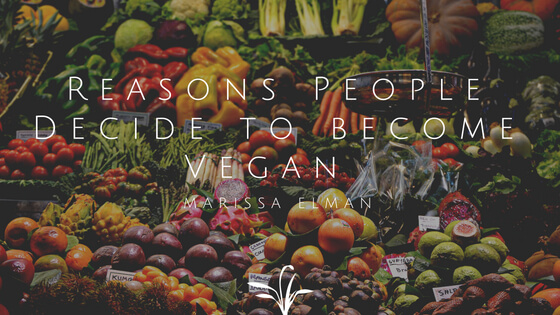While many have heard of vegetarianism, veganism is often considered a natural extension of such a diet and has been growing increasingly more popular among lifestyle choices. Similar to vegetarians, vegans avoid meat-products and also extend their dietary restrictions to any product that comes from animals, such as eggs and dairy. Vegans are cruelty-free and also tend to avoid materials such as fur, leather, and products that have been tested on animals.
While all individuals have different experiences with their transitions to veganism, there are some common threads for the lifestyle change. Here are some of the most common reasons people decide to go vegan.
Ethical
Many individuals decide to go vegan due to ethical reasons. Regardless of whether individuals have emotional attachments to animals, do not condone killing living beings, or have other reasons that coincide, choosing a vegan lifestyle allows people to avoid contributing to meat and dairy industries where animals are mistreated.
Environmental
Another reason individuals may choose to go vegan is due to environmental reasons. Animal agriculture places a heavy burden on the environment and resources. Overuse of farmlands accelerates topsoil erosion, which renders crop cultivation less productive. This reduction of productivity often leads to the necessity to convert wilderness to farmlands, which results in deforestation, loss of habitat for native species, and extinction. In addition to the burden on the land, animal waste from massive production houses also leads to water pollution and increased greenhouse gas production.
By choosing a vegan lifestyle, people are able to follow plant and nut-based diets. As crops require fewer resources, crop farming is more sustainable and healthy for the environment than animal agriculture.
Health
Individuals may also choose to go vegan to improve their health. Consuming animal fats and proteins has been tied to different types of cancers—such as lung, colon, and heart—as well as a variety of other diseases, including kidney disease, diabetes, and obesity.
Vegan diets incorporate more whole grains, vegetables, fruits, and beans, so vegans see the benefits of meals lower in fat and richer in fiber and other nutrients. As vegans can obtain protein through legumes and grains, calcium from green vegetables, and iron from chickpeas and soy products, vegans can receive all of the necessary nutrients without consuming animal products.
Other
Aside from the reasons listed above, individuals may also choose to go vegan due to other reasons as well. Some may find that plant-based diets are more affordable than diets that rely on meats. Others may have family, friends, or significant others that are making the change to become vegan and find that it has become easier to cut out meat products than cook separate meals.
Of course, individuals may also go vegan for a mixture of all of these reasons, or perhaps reasons that have not been listed. Regardless of reasons, it is important to respect others’ lifestyle choices.


